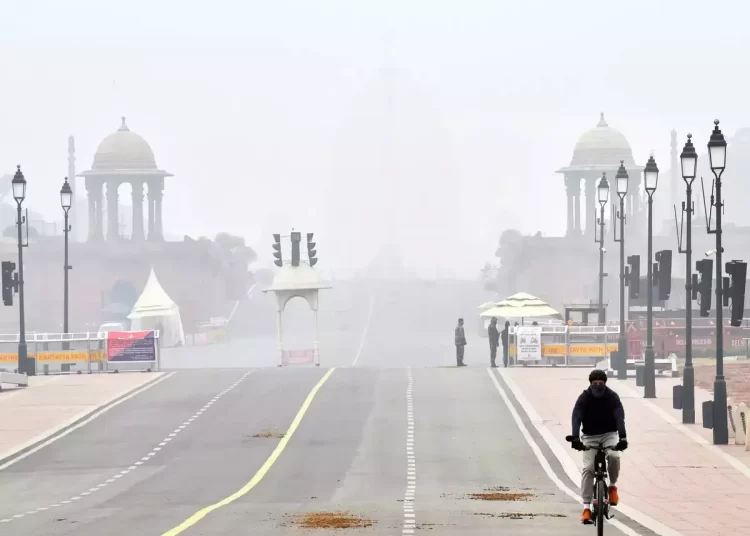The Commission for Air Quality Management (CAQM) has invoked Stage III restrictions of the Graded Response Action Plan (GRAP) in Delhi-NCR as air quality significantly worsened. The air quality index (AQI) in Delhi surged from 297 on January 8 to 357 on January 9, primarily due to calm winds and dense fog. In response, authorities have also maintained the restrictions outlined in Stages I and II of GRAP.
The CAQM stated that Stage III restrictions were implemented following Supreme Court directives to activate stringent measures when the AQI breaches the 350 mark. The panel will continue monitoring AQI trends across Delhi and the National Capital Region (NCR) to evaluate further actions.
“Citizens are urged to strictly comply with the citizen charter under GRAP Stage III,” CAQM advised in its notice.
Delhi experienced shallow fog on Thursday, accompanied by a cold wave that caused temperatures to plummet. The India Meteorological Department reported a minimum temperature of 5°C, while the maximum temperature was expected to settle at 21°C.
Under Stage III of the GRAP, the following measures have been enforced to curb pollution:
- Ban on private construction and demolition activities: To minimize dust and particulate matter.
- Educational adjustments: Schools up to Class 5 are to adopt hybrid learning modes.
- Vehicle restrictions: Prohibition of BS-III petrol and BS-IV diesel four-wheelers.
- Goods vehicle ban: Non-essential BS-IV diesel-operated medium goods vehicles are barred.
These steps aim to reduce pollution levels while balancing public health and economic activity. Notably, CAQM had revoked Stage III restrictions on January 5 due to improved AQI trends, making the current re-imposition a significant reversal.
Background on AQI Levels The Central Pollution Control Board classifies AQI levels as follows:
- Good (0-50): Minimal impact
- Satisfactory (51-100): Minor discomfort
- Moderate (101-200): Potential breathing issues for sensitive individuals
- Poor (201-300): Breathing discomfort for most people
- Very Poor (301-400): Increased health risks
- Severe (>400): Serious health implications
In December, the Supreme Court mandated that Stage III measures must be applied if AQI levels exceed 350 and Stage IV restrictions implemented if AQI crosses 400.
The CAQM emphasized the importance of public participation in adhering to these restrictions. Residents are encouraged to reduce outdoor exposure, limit vehicular usage, and adopt eco-friendly practices to mitigate pollution impacts.
As Delhi battles deteriorating air quality amidst dense fog and cold wave conditions, the focus remains on collective efforts to safeguard public health.








 India
India












